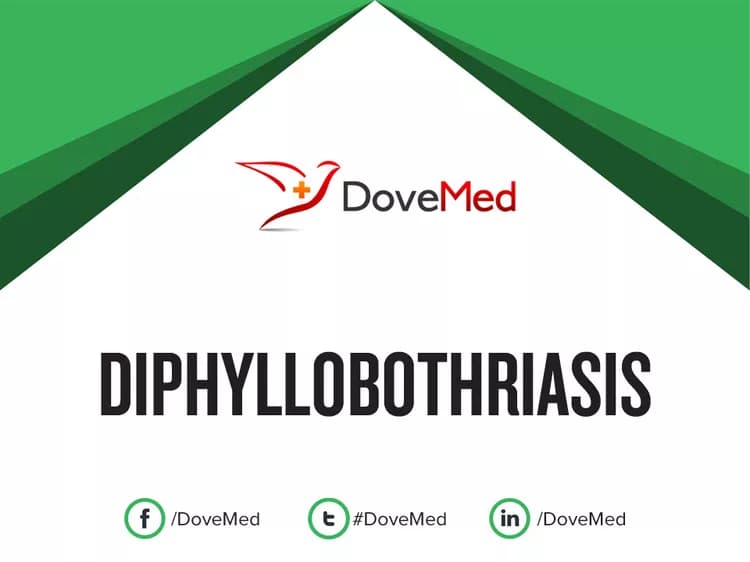What are the other Names for this Condition? (Also known as/Synonyms)
- Fish Tapeworm Infection
- Intestinal Diphyllobothriasis
- Jewish Housewife’s Disease
What is Diphyllobothriasis? (Definition/Background Information)
- Diphyllobothriasis is an infection usually caused by the tapeworm Diphyllobothrium latum. The condition may be caused by other Diphyllobothrium species too
- These parasites are flatworms that infect the intestinal tract of human beings. Individuals are affected by eating raw or uncooked freshwater fish that contain tapeworm cysts. Some saltwater fishes may also harbor this organism
- Diphyllobothriasis may cause abdominal pain, appetite loss, diarrhea or constipation, vomiting, nausea, and fatigue. The condition may be diagnosed by examining the stool samples
- The treatment involves the administration of oral and intravenous medications. The prognosis is generally good with no significant long-term complications, if the condition is suitably treated
Who gets Diphyllobothriasis? (Age and Sex Distribution)
- All individuals, having a regular habit of taking raw or undercooked fish, are likely to get Diphyllobothriasis. Individuals of all ages may be affected by the infection
- Jewish women were once most commonly infected by the parasite, due to their tradition of tasting fish, before it was fully-cooked. For this reason, Diphyllobothriasis is also known as “Jewish Housewife’s Disease”
- Otherwise, no specific ethnic or racial predilection is noted
What are the Risk Factors for Diphyllobothriasis? (Predisposing Factors)
The risk factors for Diphyllobothriasis include:
- Consumption of raw or undercooked (usually) freshwater fish
- Fishermen and their families, who primarily consume fish are higher prone to the condition
- Housewives are at a high risk, when they taste undercooked fish, during its preparation
- Eating certain regional cuisines, where raw/semi-cooked fish is served; like in certain Japanese, French, or Italian food preparations
- People living in areas where eating freshwater fish (including dry-salted, smoked) is common, like in Eastern Europe, North and South Americas, some African, Asian, and Scandinavian countries
It is important to note that having a risk factor does not mean that one will get the condition. A risk factor increases ones chances of getting a condition compared to an individual without the risk factors. Some risk factors are more important than others.
Also, not having a risk factor does not mean that an individual will not get the condition. It is always important to discuss the effect of risk factors with your healthcare provider.
What are the Causes of Diphyllobothriasis? (Etiology)
- Humans are infected by Diphyllobothriasis, when they eat raw or undercooked fish that contains fish tapeworm cysts (especially belonging to the tapeworm Diphyllobothrium latum)
- When an individual consumes the infected fish, the tapeworm larva begins to grow in the intestine. In about 3-6 weeks’ time, it grows to become an adult worm
- Eggs are formed in each segment of the worm, which is then passed out in the stool. Sometimes, the whole worm or parts of the worm may be seen in the stool
What are the Signs and Symptoms of Diphyllobothriasis?
The following signs and symptoms characterize a Diphyllobothriasis infection:
- Abdominal pain
- Loss of appetite, sudden weight loss
- Diarrhea or constipation
- Vomiting, nausea, and fatigue
- Deficiency of vitamin B12
- Anemia
- Presence of worm eggs (or worm parts) in stool
- In most of the human population, the infection remains asymptomatic
How is Diphyllobothriasis Diagnosed?
A diagnosis of Diphyllobothriasis may involve:
- Physical evaluation and study of medical history
- Examination of stool for the presence of eggs and parasites; tapeworm segments (proglottids) passed in the stool, is also examined for confirmation
- Complete blood count to check for anemia
Many clinical conditions may have similar signs and symptoms. Your healthcare provider may perform additional tests to rule out other clinical conditions to arrive at a definitive diagnosis.
What are the possible Complications of Diphyllobothriasis?
The possible complications that can arise from Diphyllobothriasis are:
- Vitamin B12 deficiency leading to megaloblastic anemia (blood disorder characterized by anemia with larger than normal-sized red blood cells)
- Intestinal obstruction in extreme infections
How is Diphyllobothriasis Treated?
The treatment measures for Diphyllobothriasis mainly involve:
- Taking oral medications like praziquantel or niclosamide. The healthcare provider will choose the specific medications necessary, since some of the medications are not (US FDA) approved
- Vitamin B12 injections are taken as supplements, in order to treat megaloblastic anemia
How can Diphyllobothriasis be Prevented?
The following preventive measures can be adopted to reduce the risk of Diphyllobothriasis:
- Eating raw or undercooked (especially freshwater) fish must be avoided. Cooking fish to temperatures over 145 deg. F (63 deg. C) kills the parasitic organism
- Wash hands properly after cleaning fish, before preparing food, and before eating
- Freshwater fish may be stored frozen before preparation; freezing fish up to -4 deg. F (-20 deg. C) for 24 hours, helps kill the tapeworm eggs
- Proper disposal of sewage (including fish wastes) can help bring down the risk of contracting Diphyllobothriasis
- Proper hygiene must be adhered to at all times (by both children and adults) - wash hands with soap and water after defecation
- Water contaminated or infected with feces (containing the parasite) must be avoided
What is the Prognosis of Diphyllobothriasis? (Outcomes/Resolutions)
- In most cases, a single dose of drugs is enough to treat Diphyllobothriasis
- The parasitic infection generally does not leave any long-lasting effects
Additional and Relevant Useful Information for Diphyllobothriasis:
The following DoveMed website link is a useful resource for additional information:
https://www.dovemed.com/diseases-conditions/infection-center/
Related Articles
Test Your Knowledge
Asked by users
Related Centers
Related Specialties
Related Physicians
Related Procedures
Related Resources
Join DoveHubs
and connect with fellow professionals


0 Comments
Please log in to post a comment.